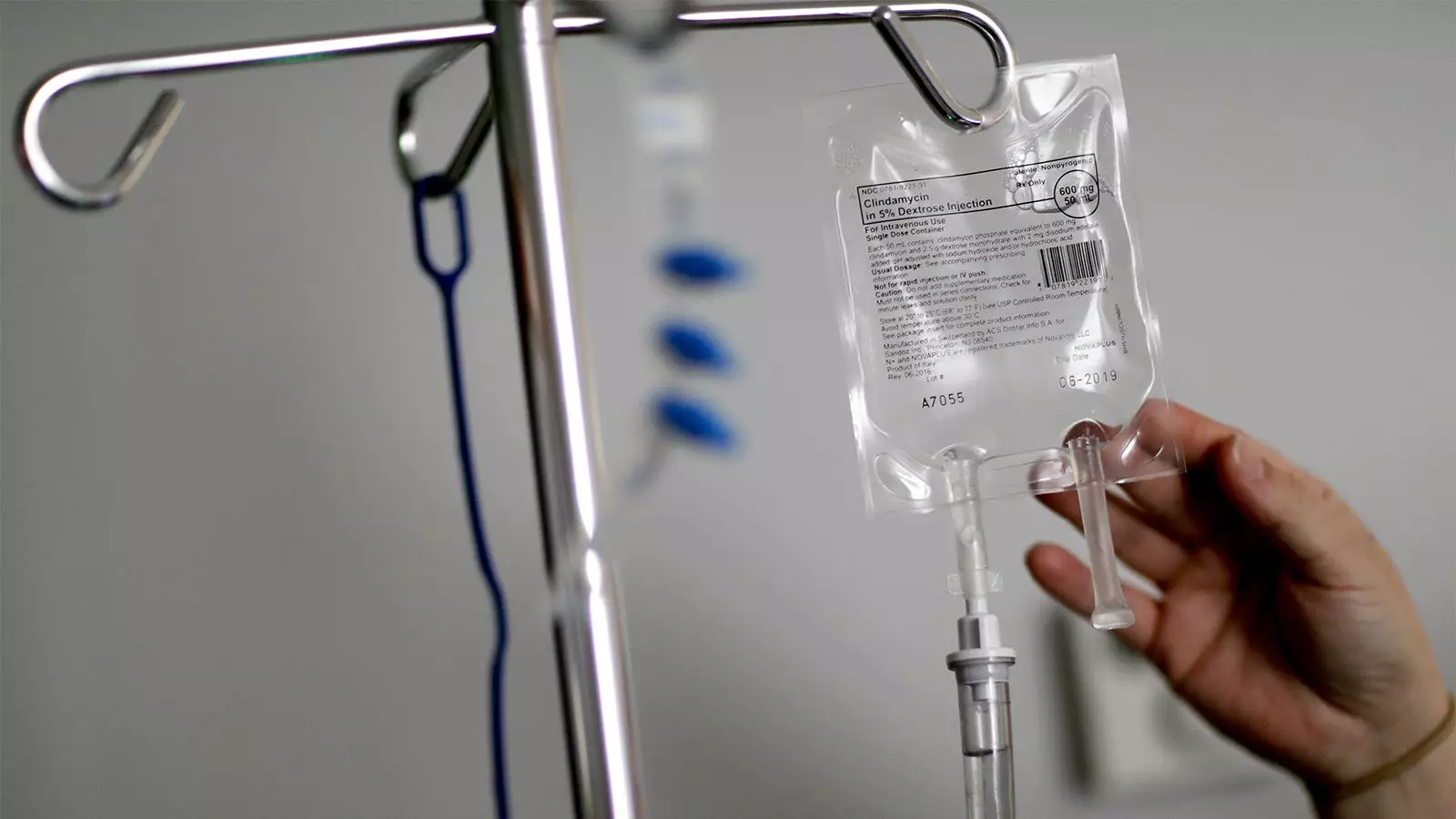In an age where supply chain disruptions are increasingly common due to natural disasters, the looming threat of Hurricane Milton presents yet another challenge for the healthcare industry, particularly concerning intravenous (IV) fluid supplies. Federal authorities are currently taking measures to safeguard critical hospital supplies from the hurricane’s reach, a necessity heightened by the prior devastation caused by Hurricane Helene that significantly impacted production in North Carolina. As hospitals across the nation grapple with this ongoing crisis, the situation reveals the fragile state of healthcare supply chains and the urgent need for proactive measures to protect patient care.
B. Braun Medical has emerged as a key player in addressing the IV fluid shortfall exacerbated by Hurricane Helene. Acting swiftly, the company has coordinated with U.S. health authorities to relocate its IV bag inventory to a secure site away from its Daytona Beach facility, which was closed to mitigate potential damage from Hurricane Milton. As highlighted by spokesperson Allison Longenhagen, the company anticipates resuming manufacturing and logistics operations by Friday, reflecting a more prepared stance than previous manufacturers who faced unexpected setbacks.
This preemptive action by B. Braun exemplifies an important shift toward a more resilient supply chain, demonstrating how preparedness can lessen the impact of natural disasters on healthcare operations. With hospitals relying on over 2 million IV bags daily for hydration and medication delivery, the need for smooth and uninterrupted supply flow cannot be overstated.
The disruptions caused by Hurricane Helene serve as a sobering reminder of the vulnerabilities present in our healthcare supply networks, particularly for essential products like IV fluids. Baxter International, responsible for approximately 60% of the country’s sterile IV liquid supply, faced significant operational challenges when floods severely damaged its North Carolina facility. Experts like Mike Ganio, PharmD, from the American Society of Health-System Pharmacists, have emphasized the necessity of learning from such scenarios. While Baxter’s situation highlighted the risks of unpreparedness, B. Braun’s proactive measures are encouraging.
This duality of outcomes exemplifies the healthcare industry’s urgent need for a robust contingency planning framework to navigate the complexities of manufacturing and logistics during turbulent times. Stakeholders must collaborate to ensure that vital products remain unaffected by unforeseen external factors.
In light of the persisting shortages, stakeholders are calling on the Biden administration to intensify its efforts to contain and alleviate the crisis. The American Hospital Association has urged the government to consider declaring a national emergency and activating defense production authorities to prioritize the essential manufacturing of IV fluids. U.S. Health Secretary Xavier Becerra has acknowledged the complexities of the current supply chain disruption but has not yet invoked emergency powers.
Given the government’s prior actions in addressing shortages—ranging from baby formula to essential medical supplies during the COVID-19 pandemic—there exists a precedent facilitating swift intervention when necessary. As Secretary Becerra considers extending expiration dates for existing products, temporary imports, and identifying additional domestic production capabilities, it is evident that strategic government involvement will be vital in stabilizing the supply chain.
As supply shortages loom, hospitals and specialized pharmacies are facing growing pressure to meet the needs of patients. The FDA has recognized the dilemma, permitting healthcare providers to compound their own formulations of IV fluids and saline solutions already classified as short in supply. This temporary resolution offers a glimmer of hope, allowing hospitals flexibility in managing critical issues during supply disruptions.
However, compounding practices should not overshadow the need for systemic reform in the way IV products are manufactured and distributed. The focus must shift toward ensuring a stable and reliable supply chain capable of withstanding both natural disasters and other unforeseen events.
The ongoing challenges posed by Hurricane Milton underscore the intricate balances in the healthcare supply chains that safeguard public health. Through strategic actions by manufacturers, coordinated efforts by healthcare associations, and potential government interventions, there lies an opportunity to re-evaluate and strengthen the resilience of healthcare systems against future crises. The collaboration of all sectors, from production to policy, is crucial to creating a robust framework that prioritizes the well-being of patients nationwide. It is through these reforms and proactive measures that the healthcare community can cultivate the resilience necessary to navigate both current challenges and those looming on the horizon.


Leave a Reply